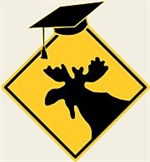Conventional political histories tell us that between 1867 and 1947 Canada, Australia, Aoteroa/New Zealand, Eire/Ireland, Newfoundland and India became “dominions,” described in 1926 as “autonomous communities within the British Empire.” Until the 1980s the language of Dominion was threaded through multiple states and institutions: In Canada, people celebrated and protested Dominion Day, reported to the Dominion Bureau of Statistics, and deposited their pay cheques at the Toronto Dominion Bank. The Dominion Archivist was tasked with preserving the record of the national history. Canada was not alone. Throughout Britain’s imperial realm, the language of Dominion evoked and legitimated ideas of Empire, property, and territorial ambition and control.
As we approach the 150th Anniversary of Confederation in Canada, Histoire Sociale / Social History invites historians working in diverse national and geographic fields to re-evaluate the multiple histories and meanings of dominion across the globe. Essays might engage histories of colonialism and/or imperialism, state-formation, Indigenous peoples, political representation, migration, the gendering of states, racialization, popular politics, and multiple kinds of property from a social history perspective. Essays can engage places that received the formal title of Dominion status and the many parts of the British Empire that did not. The editors are open to approaches that focus on specific locations in the imperial world and to transnational and comparative approaches.
The deadline for submissions is November 30, 2016.
Those interested are invited to contact the journal in advance. Authors are invited to visit the journal’s website for presentation guidelines and send their submissions in electronic format—an e-mail attachment in Word is preferred—the following address:
Histoire Sociale / Social History
Université d’Ottawa / University of Ottawa
55, av. Laurier Ave. E. DMS 9127
Ottawa, Ontario, K1N 6N5
Email: hssh@uottawa.ca
Website.
Guest Editors: Adele Perry, University of Manitoba and Jarett Henderson, Mount Royal University

